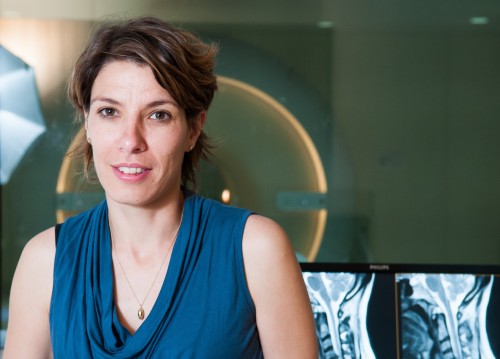Researchers from Ben Gurion University have found alternative ways to develop visual recognition skills for people suffering from congenital facial recognition impairment*

The study by a group of female researchers from the Department of Psychology at Ben-Gurion University of the Negev, which was recently published in the scientific journal Neuropsychologia, demonstrates the uniqueness of the face perception mechanism over the recognition of other objects and examines alternative mechanisms that enable visual specialization even when face perception is poor.
Prosopagnosia, sometimes also called face blindness, is an impairment manifested by significant difficulty or inability to process different faces and distinguish between them. In extreme cases, those affected by the phenomenon have difficulty even recognizing their family members. The defect can be congenital or caused by a brain injury. The public is almost unaware of this defect, even though a significant number of people suffer from its congenital form, and sometimes even those suffering from the difficulty are not aware that such a phenomenon exists which is known to science.
Humans who do not face a face blindness disorder, acquire throughout their lives a high level of expertise in recognizing faces. For this purpose, they use a prominent behavioral mechanism in the perception of faces, called "holistic perception", which performs a rapid processing of the complex of facial details (eyes, nose, mouth...) when looking at a person's face, instead of serial processing of each detail separately. This type of processing allows recognition of the face in one quick glance, without investing much effort.
For many years, researchers in the field of cognitive psychology and neuroscience have struggled with the question of whether faces constitute a unique category that is processed by separate brain and behavioral mechanisms, or whether faces constitute an extreme case of the acquisition of visual expertise (such as expertise in identifying cars or birds).
The unique study, headed by Prof. Galia Avidan from the Department of Psychology at Ben-Gurion University of the Negev, examined whether, given significant training, the same mechanisms are capable of being used to identify other objects for which evidentiary expertise has been acquired. The research was led by Neely Weiss, a doctoral student in the Department of Psychology at Ben-Gurion University together with Alit Mardo, currently a doctoral student in the Department of Psychology at the University of Haifa.
The idea to carry out the research arose when a student who suffered from congenital prosopagnosia arrived at Prof. Avidan's laboratory in the Department of Psychology. This student has worked on a horse farm since she was 7 years old, and subsequently acquired a high skill in identifying horses. These unique circumstances, in which the subject, despite the difficulty in perceiving faces, acquired expertise in perceiving objects from a different evidential category, constitute a window into the study of the mechanisms that mediate evidential expertise. In the study, it was found that the subject, who, like all people with face blindness, does not use a holistic perception when perceiving faces, developed unique behavioral strategies, which are not holistic, for perceiving horses.
In a follow-up study conducted these days by Prof. Galia Avidan and Neely Weiss using functional magnetic resonance imaging (fMRI), it was found that in this subject, brain areas that play a central role in perceiving faces, also function in a similar way when perceiving horses, in contrast to the other subjects, who They have a distinct response to faces only in these areas. The results of these studies demonstrate that behaviorally it is possible to acquire visual expertise without mechanisms that mediate the perception of faces. However, brain-wise, given an impairment in face perception, mechanisms underlying face perception may also underlie the perception of other categories of visual expertise.
Photo of the researcher
Caption for the photo:
Link to the scientific article published at http://www.sciencedirect.com

3 תגובות
By the way - two years ago I referred to this study two people I knew, who suffer from difficulty in recognizing faces, including the one I wrote about in my previous response. And more: a previous article on the subject was published here a year ago https://www.hayadan.org.il/face-perception-bgu-0207149
lion
This is an interesting addition, thanks!
I knew a person who suffered from this disorder, but not for a congenital reason and not due to a brain trauma event. He was extremely myopic, and at the time when babies learn to recognize faces, he only saw blurry spots. When he already had glasses, it was at an age when the brain had already missed the period when the baby learns to recognize faces and at a later period, this skill can no longer be acquired. A critical period for learning also exists in many other skills. Example - wolf children cannot learn to walk on two feet.